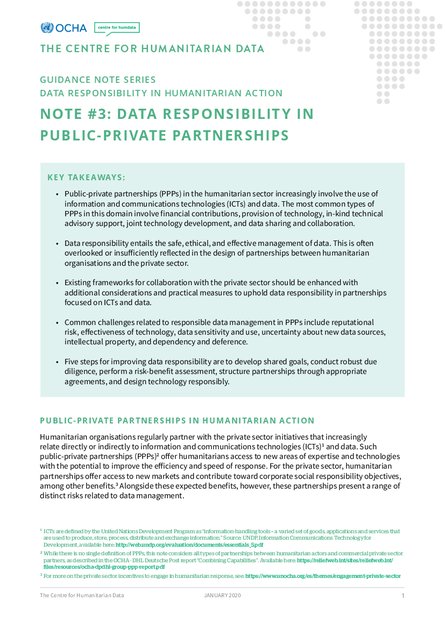
Key takeaways:
- Public-private partnerships (PPPs) in the humanitarian sector increasingly involve the use of information and communications technologies (ICTs) and data. The most common types of PPPs in this domain involve financial contributions, provision of technology, in-kind technical advisory support, joint technology development, and data sharing and collaboration.
- Data responsibility entails the safe, ethical, and effective management of data. This is often overlooked or insufficiently reflected in the design of partnerships between humanitarian organisations and the private sector.
- Existing frameworks for collaboration with the private sector should be enhanced with additional considerations and practical measures to uphold data responsibility in partnerships focused on ICTs and data.
- Common challenges related to responsible data management in PPPs include reputational risk, effectiveness of technology, data sensitivity and use, uncertainty about new data sources, intellectual property, and dependency and deference.
- Five steps for improving data responsibility are to develop shared goals, conduct robust due diligence, perform a risk-benefit assessment, structure partnerships through appropriate agreements, and design technology responsibly.